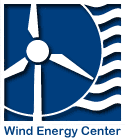Substantial debate surrounds development of offshore wind turbines in U.S. and state waters and few issues are more controversial than the visual impact of these facilities on scenic and visual resources. This session will focus on development of a Visual Impact Assessment (VIA) methodology by the Cape Cod Commission to assess the potential visual impacts of wind turbines in Cape Cod's ocean waters. The VIA process was created in response to the 2009 Massachusetts Ocean Management Plan (OMP) that allowed development of up to 24 community-scale wind turbines in Cape Cod’s planning area (100 total statewide). The state’s OMP charged regional planning agencies with determining appropriate scale for renewable energy facilities and to create regional regulatory review standards for renewable energy and other uses allowed by the OMP. The session will include an overview of the state’s OMP and District of Critical Planning Concern (DCPC) designation that allowed a limited moratorium on development in the planning area. The designation allowed policy makers, stakeholders, and citizens the opportunity to develop regional tools and regulations to address issues and concerns specific to Cape Cod, including the potential visual impact of offshore wind turbines on the region’s scenic and cultural resources. The session will describe a Visual Impact Assessment (VIA) process developed by the Cape Cod Commission that will be used in the regional regulatory review for offshore renewable energy facilities in state waters. The VIA provides a method for: systematic evaluation of the region’s scenic resources; establishing the visibility of the project; completing an inventory of visual and scenic resources affected; and, siting and design guidance to avoid or minimize visual impacts. The session will also describe how computer visualizations were prepared to test visual preferences of offshore wind turbines at different distances and configurations, and how those visualizations were used in a public opinion poll to help reach consensus on appropriate scale and regional review standards. Bio: Ms. Rooney manages the Planning and Community Development Department of the Cape Cod Commission. She oversees a staff of 11 professionals with expertise in land use planning and design, economic development, and affordable housing. Her department provides local planning and design services to the 15 Cape Cod communities including corridor studies, specific area plans, and design guidelines. Sharon is responsible for the five-year update and implementation of the Cape Cod Regional Policy Plan, which guides the Commission’s planning activities and regional regulatory review process for large development projects. She has over 20 years of regulatory experience and played a major role in restructuring the Commission’s environmental review process to incorporate the region’s first land use mapping approach to planning and regulation. Sharon has had a primary role in development of innovative regional planning practices including a visual impact assessment methodology for offshore renewable energy development; coordinated efforts with a community-based working group to develop a master plan for a 22,000- acre military reservation on Cape Cod; and contributed to the preparation of design guidelines for regional development review and local adoption. She is currently coordinating the Commission’s efforts to prepare a regional wastewater management plan for Cape Cod to address nitrogen pollution to Cape Cod’s coastal watersheds. Ms. Rooney has a Master’s Degree in Landscape Architecture from Harvard University Graduate School of Design and holds a Bachelor of Science in Regional Analysis from the University of Wisconsin. She is a Registered Landscape Architect (RLA #1020), Commonwealth of Massachusetts and Member, American Institute of Certified Planners (AICP) and American Planning Association (APA).
Development of Visual Impact Assessment Methodology for Wind Turbines in Cape Cod’s Ocean Waters
Date:
Thursday, February 9, 2012 - 12:30pm
Location:
Kellogg Rm. E-Lab 2, UMass Amherst
Year:
2012
Semester:
Speaker(s):

